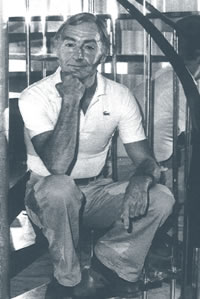Guide to: The Desmond Elliot Prize
These days it seems like there is a prize or an award for everything. We all got swept up in the glamour of the Oscars and jumped out of our seats when Made in Chelsea won a BAFTA, but now it’s time to focus on the talents of great wordsmiths and highlight the wonderful prizes and rewards that are in store for the best writers around.
The Desmond Elliot prize was launched in 2007 and has been growing in esteem ever since. It comprises of a panel of three judges who “look for a novel of depth and breadth with a compelling narrative,” which sounds like the sort of book everyone would want to read!
 What I think is so fantastic about the Desmond Elliot prize is that it acknowledges and celebrates new talent and emerging writers. It is a prize dedicated to finding and honoring new writers who otherwise may be swallowed up in the shelves of Dan Brown, Julian Barnes and other well established yet mass produced names. Another thing that marks it as an interesting and innovative prize is that it doesn’t discriminate based on genre. It is refreshing to have a prize that considers science fiction alongside crime and straight drama. Though there may be those who wish to commemorate these genres separately, personally I like the idea of a prize that rejoices in great writing – that sees books and reading as an inclusive and exciting experience without set boundaries.
What I think is so fantastic about the Desmond Elliot prize is that it acknowledges and celebrates new talent and emerging writers. It is a prize dedicated to finding and honoring new writers who otherwise may be swallowed up in the shelves of Dan Brown, Julian Barnes and other well established yet mass produced names. Another thing that marks it as an interesting and innovative prize is that it doesn’t discriminate based on genre. It is refreshing to have a prize that considers science fiction alongside crime and straight drama. Though there may be those who wish to commemorate these genres separately, personally I like the idea of a prize that rejoices in great writing – that sees books and reading as an inclusive and exciting experience without set boundaries.
With the shortlist announced only weeks ago, the longlist of ten was whittled down to just three: The Panopticon by Jenni Fagan, The Marlowe Papers by Ros Barber and The Universe Versus Alex Woods by Gavin Extence. Having only read one of them myself (The Panopticon) which I thought was brilliant and featured one of my favourite protagonists that I have ever encountered; I can testify that the talent of this prize is high and I can’t wait to get my hands on Barber’s and Extence’s offerings.
For those not familiar with any of the titles, they all feature protagonists who have for one reason or another been pushed to the margins of society. The Marlowe Papers focuses on the life, death and subsequent exile of the renowned playwright Christopher Marlowe. In an innovative and bold choice Barber has also chosen to write her novel entirely in verse, engaging with the style of Marlowe himself and creating an ambitious and engaging debut novel. The Panopticon documents the tale of the headstrong Anais Hendricks and her experiences when banished to an intimidating young offenders institute. It explores the lack of support from society, and its failure of those within the care system. Fagan’s novel reveals how people do not merely slip down the social net but fall through it, only to realise that it isn’t there after all. Finally, Extense’s protagonist, 10-year-old Alex Woods suffers an extraordinary accident that precipitates a whole series of other events. This domino effect novel is told through the eyes of Alex and explores the events that came to shape not only him, but how a whole host of characters came to be.
[pullquote style=”right” quote=”dark”]It is a prize dedicated to finding and honouring new writers who otherwise may be swallowed up in the shelves[/pullquote]
The chair of the judges and bestselling novelist Joanne Harris has spoken extremely highly of all three novels and their respective authors; it seems that we can anticipate a close deliberation before the prize is announced on June 27. I for one am extremely excited, and I cannot wait to read the rest of the novels both on the shortlist and the longlist, so that I too can rejoice in the amazing new talent and celebrate their continued precedence.
[divider]

Comments